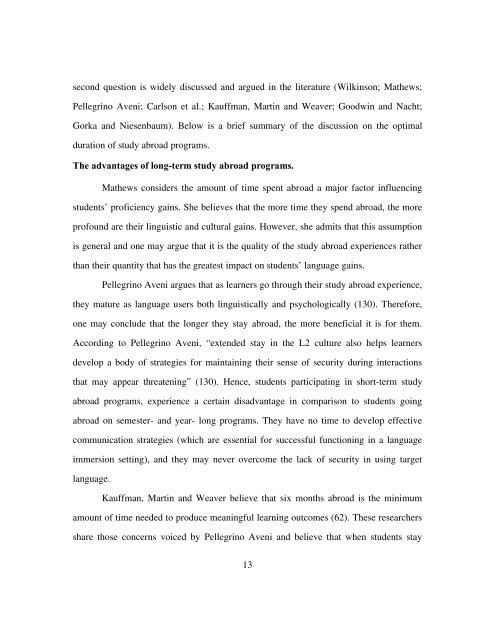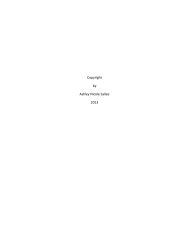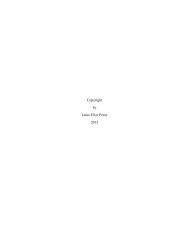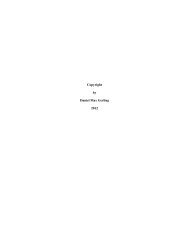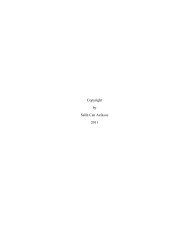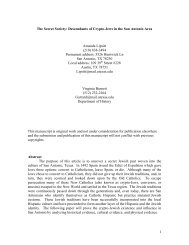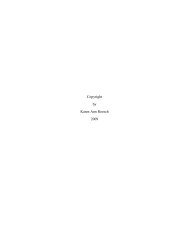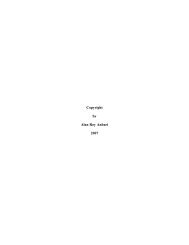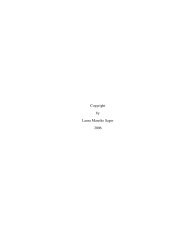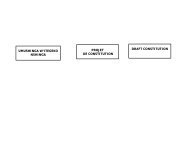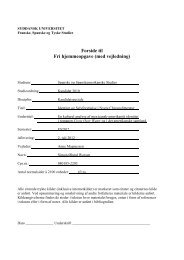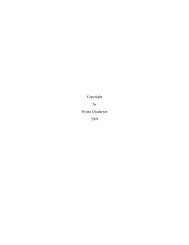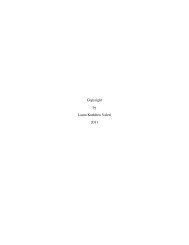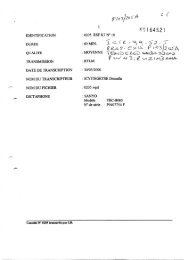Copyright by Tatiana Borisovna Segura 2008 - The University of ...
Copyright by Tatiana Borisovna Segura 2008 - The University of ...
Copyright by Tatiana Borisovna Segura 2008 - The University of ...
You also want an ePaper? Increase the reach of your titles
YUMPU automatically turns print PDFs into web optimized ePapers that Google loves.
second question is widely discussed and argued in the literature (Wilkinson; Mathews;<br />
Pellegrino Aveni; Carlson et al.; Kauffman, Martin and Weaver; Goodwin and Nacht;<br />
Gorka and Niesenbaum). Below is a brief summary <strong>of</strong> the discussion on the optimal<br />
duration <strong>of</strong> study abroad programs.<br />
<strong>The</strong> advantages <strong>of</strong> long-term study abroad programs.<br />
Mathews considers the amount <strong>of</strong> time spent abroad a major factor influencing<br />
students’ pr<strong>of</strong>iciency gains. She believes that the more time they spend abroad, the more<br />
pr<strong>of</strong>ound are their linguistic and cultural gains. However, she admits that this assumption<br />
is general and one may argue that it is the quality <strong>of</strong> the study abroad experiences rather<br />
than their quantity that has the greatest impact on students’ language gains.<br />
Pellegrino Aveni argues that as learners go through their study abroad experience,<br />
they mature as language users both linguistically and psychologically (130). <strong>The</strong>refore,<br />
one may conclude that the longer they stay abroad, the more beneficial it is for them.<br />
According to Pellegrino Aveni, “extended stay in the L2 culture also helps learners<br />
develop a body <strong>of</strong> strategies for maintaining their sense <strong>of</strong> security during interactions<br />
that may appear threatening” (130). Hence, students participating in short-term study<br />
abroad programs, experience a certain disadvantage in comparison to students going<br />
abroad on semester- and year- long programs. <strong>The</strong>y have no time to develop effective<br />
communication strategies (which are essential for successful functioning in a language<br />
immersion setting), and they may never overcome the lack <strong>of</strong> security in using target<br />
language.<br />
Kauffman, Martin and Weaver believe that six months abroad is the minimum<br />
amount <strong>of</strong> time needed to produce meaningful learning outcomes (62). <strong>The</strong>se researchers<br />
share those concerns voiced <strong>by</strong> Pellegrino Aveni and believe that when students stay<br />
13


